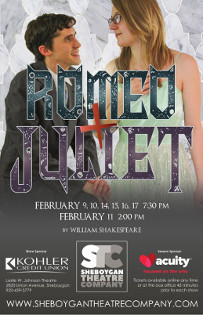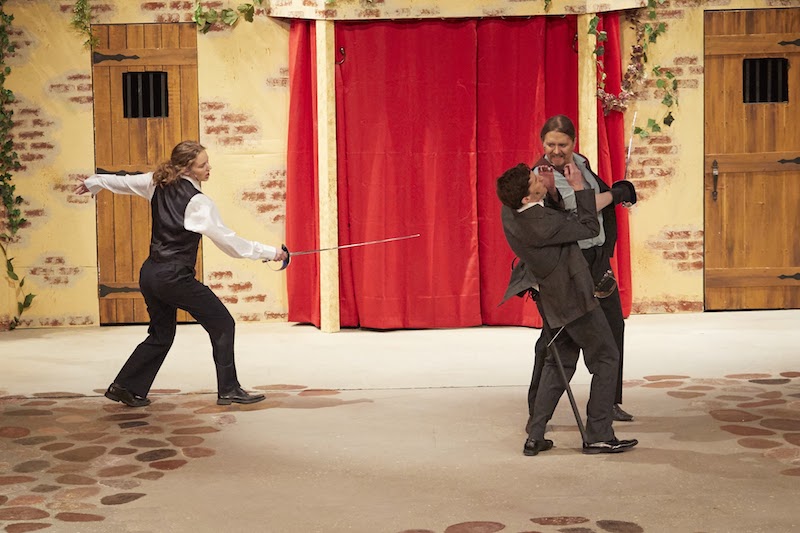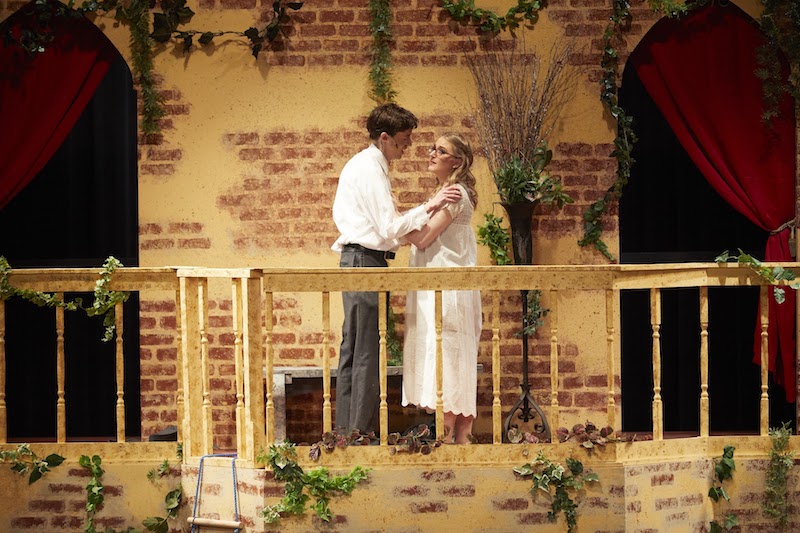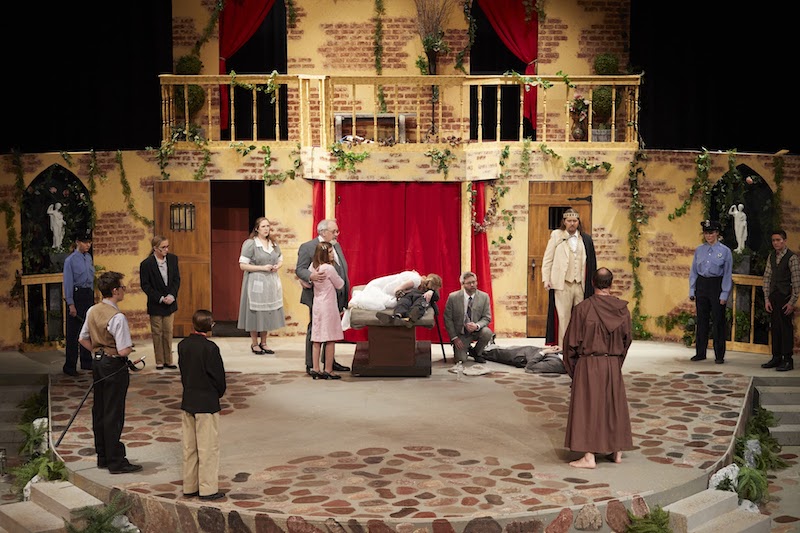As a general rule, I don't like pelvic-thrusting in productions of Shakespeare. Usually, it's a lazy way for the director / actor to explain that something is a sexual pun, and is thus a way of condescending to the audience: it explains to them that they WOULD have found this funny if they understood that the words might plausibly be a double entendre. But Romeo and Juliet is different.
In this play, Shakespeare uses the sexual banter of teenage boys and young men set in contrast to older men who claim to be sober governors of their lusty impulses moments after giving into intemperate violence, and in between moments of bragging of their own youthful indiscretions. The matriarchal forces at work in this play are no better; their teasing Juliet with the eventuality of her wedding night only reinforces the boys-will-be-boys attitude that excuses a pervasive culture that celebrates sexual violence as a marker of virility.
Shakespeare understood in the 1590s how a culture that fosters toxic masculinity leads to a culture of increasing violence, even to the brink of civil war. Aggressive innuendos lead to petit sexual assaults that are preludes to murders, which threaten to burn Verona to the ground. When the prince and people alike are unable to govern their baser impulses, the youth of the nation pay the ultimate price.
Juliet and Romeo's tragedy isn't that they were children who didn't understand love (they understand it better than most), it's that they had no adults to teach them any better. Death was the first option they considered, and in the end it was the only one they had left. It is the tragedy of a nation, writ in pelvic thrusts.
(hide)

 "What drawn and talk of peace?" from the Sheboygan Theatre Co.'s 2018 production of Romeo and Juliet. Directed by Tony Tambasco. Photo by Michael Huibretgse.
"What drawn and talk of peace?" from the Sheboygan Theatre Co.'s 2018 production of Romeo and Juliet. Directed by Tony Tambasco. Photo by Michael Huibretgse.
 "Examine other beauties." from the Sheboygan Theatre Co.'s 2018 production of Romeo and Juliet. Directed by Tony Tambasco. Photo by Michael Huibretgse.
"Examine other beauties." from the Sheboygan Theatre Co.'s 2018 production of Romeo and Juliet. Directed by Tony Tambasco. Photo by Michael Huibretgse.
 Romeo asks Juliet to dance at the "old accustomed feast," from the Sheboygan Theatre Co.'s 2018 production of Romeo and Juliet. Directed by Tony Tambasco. Photo by Michael Huibretgse.
Romeo asks Juliet to dance at the "old accustomed feast," from the Sheboygan Theatre Co.'s 2018 production of Romeo and Juliet. Directed by Tony Tambasco. Photo by Michael Huibretgse.
 "What man art thou, that thus bescreened in night / So stumblest on my counsel?" from the Sheboygan Theatre Co.'s 2018 production of Romeo and Juliet. Directed by Tony Tambasco. Photo by Michael Huibretgse.
"What man art thou, that thus bescreened in night / So stumblest on my counsel?" from the Sheboygan Theatre Co.'s 2018 production of Romeo and Juliet. Directed by Tony Tambasco. Photo by Michael Huibretgse.
 Mercutio lets Romeo know, in no undertain terms, his help is not appreciated, while Tybalt goes in for a punto (which Mercutio is ready to parry) from the Sheboygan Theatre Co.'s 2018 production of Romeo and Juliet. Directed by Tony Tambasco. Photo by Michael Huibretgse.
Mercutio lets Romeo know, in no undertain terms, his help is not appreciated, while Tybalt goes in for a punto (which Mercutio is ready to parry) from the Sheboygan Theatre Co.'s 2018 production of Romeo and Juliet. Directed by Tony Tambasco. Photo by Michael Huibretgse.
 "I will be deaf to pleading and excuses," from the Sheboygan Theatre Co.'s 2018 production of Romeo and Juliet. Directed by Tony Tambasco. Photo by Michael Huibretgse.
"I will be deaf to pleading and excuses," from the Sheboygan Theatre Co.'s 2018 production of Romeo and Juliet. Directed by Tony Tambasco. Photo by Michael Huibretgse.
 "It is the lark that sings so out of tune," from the Sheboygan Theatre Co.'s 2018 production of Romeo and Juliet. Directed by Tony Tambasco. Photo by Michael Huibretgse.
"It is the lark that sings so out of tune," from the Sheboygan Theatre Co.'s 2018 production of Romeo and Juliet. Directed by Tony Tambasco. Photo by Michael Huibretgse.

